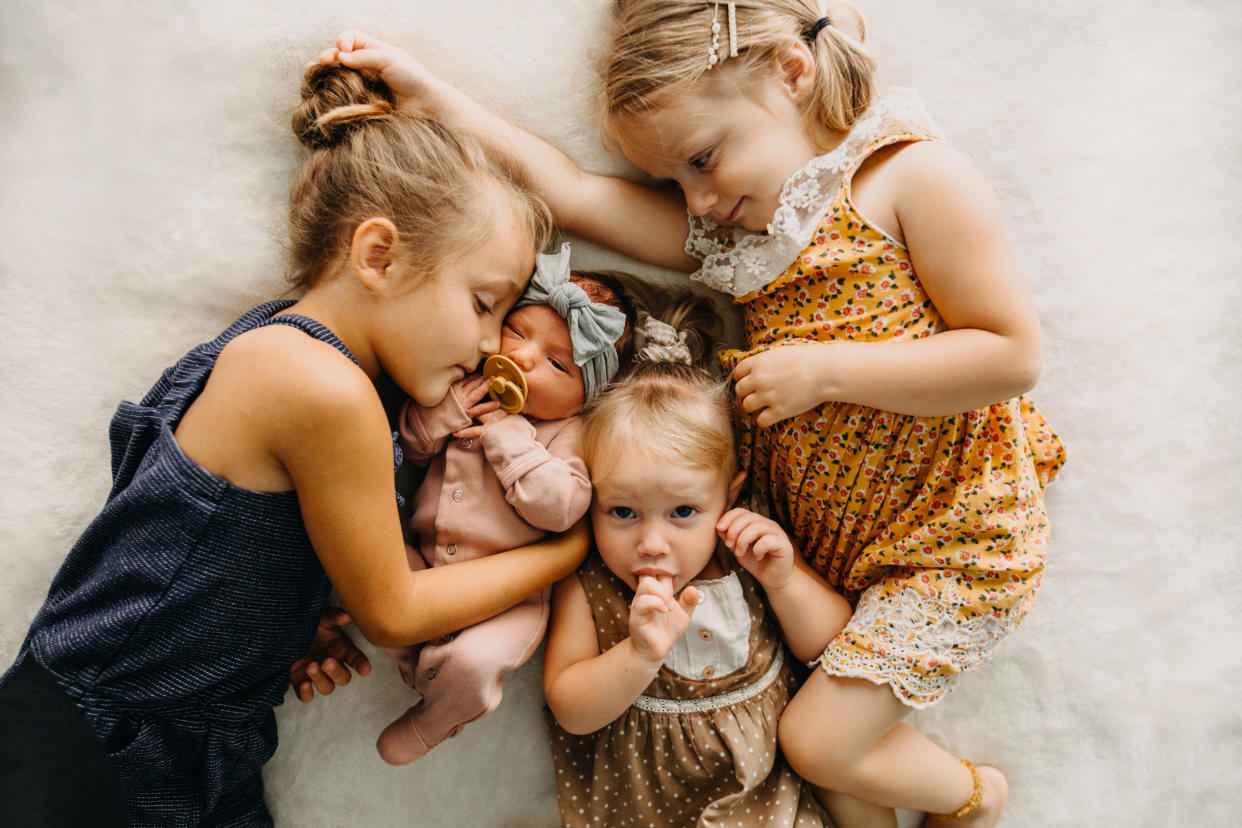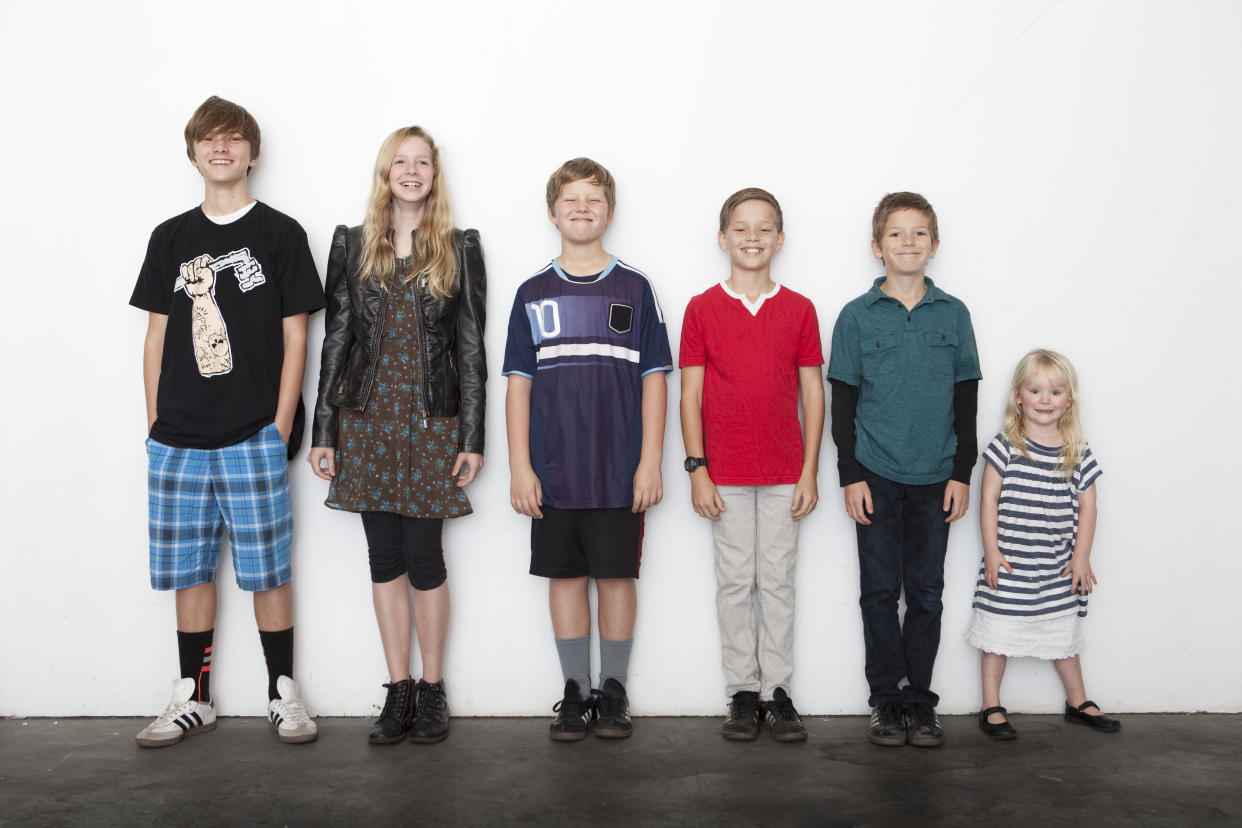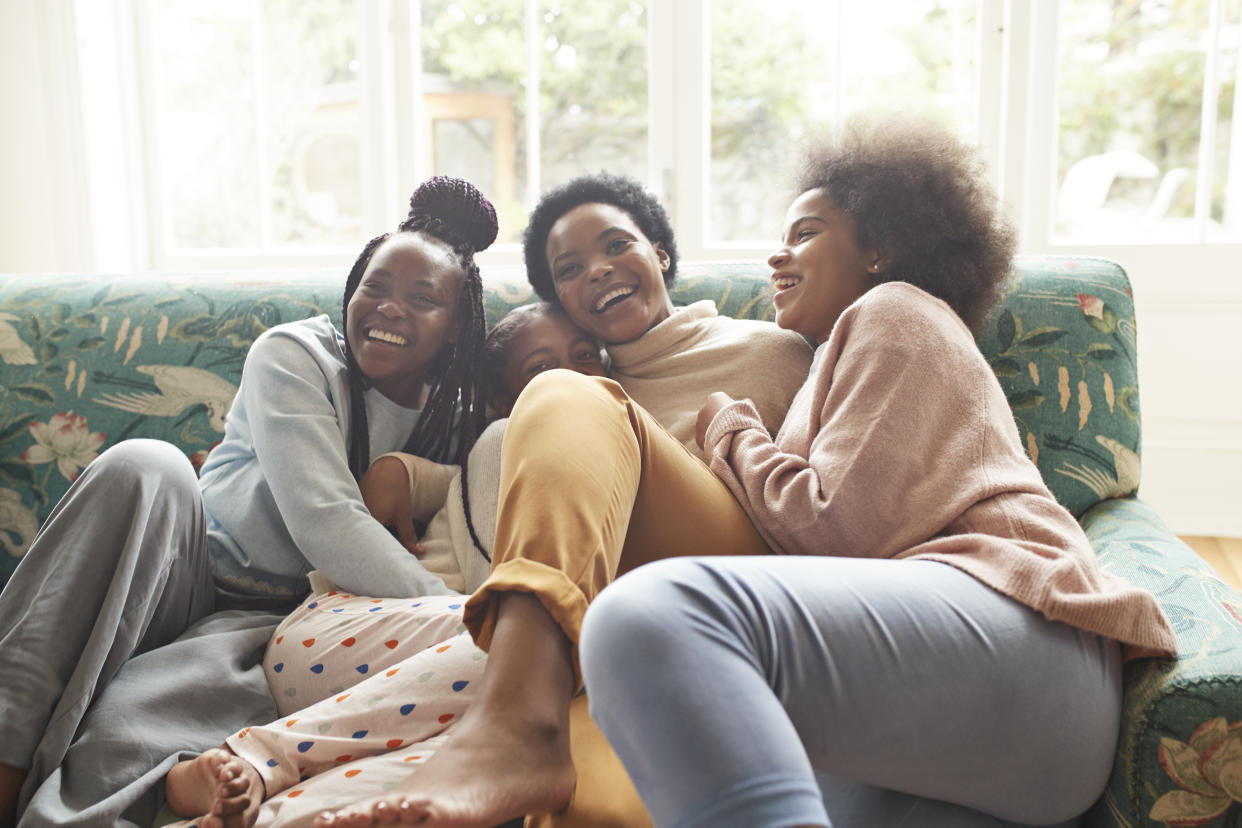Children with more siblings have worse mental health, study finds

Children, particularly teenagers, with a large number of siblings often have worse mental health than those from smaller families, a new study has found.
The study looked at data from secondary school aged children in the US and China, to contrast larger and smaller family sizes respectively.
Nearly 19,000 children were analysed in the study, with an average age of 14. The researchers also found that the closer the age gap among siblings, the worse off the mental health.
They were asked a range of questions about their mental health, and the results showed that, in China, children with no siblings had the best mental health, while children in the US with no siblings or just one had better mental health than those with multiple brothers and sisters.
It also found that close sibling age gaps worsened mental health, as did having younger siblings.
"Parents who have more children may have fewer resources to reduce stress in the home relative to parents who have fewer children," the study authors concluded.
They added: "Closely spaced siblings compete more for the kinds of resources the target child needs from parents. In addition, siblings born within one year and older are the only ones associated with lower mental health while younger siblings have no association with mental health."
Why more siblings impacts mental health
According to Smriti Joshi, Chief Psychologist at Wysa, one reason for these findings could be attachment theory, which suggests that early bonds with caregivers shape emotional and mental wellbeing.

"Having more siblings can sometimes lead to increased competition for parental attention and resources," she explains. "This dynamic might contribute to feelings of neglect or rivalry, impacting mental wellbeing, where resources may be divided and children might experience challenges in forming secure attachments.
"This could contribute to feelings of insecurity or anxiety. In larger families, recognising and addressing individual attachment needs within the family context can be crucial for fostering positive mental health outcomes. Understanding each child's unique needs and fostering open communication within the family can help mitigate these challenges."
The effect of small sibling age gaps
Simon Davies, Registered Counsellor at Living Well UK says closeness in sibling age can result in poorer mental health due to thinly spread parental resources.
"There is no promise that all siblings are going to want to do the same thing all the time, so having to split – and therefore decrease – the attention given to each child might leave them feeling unwanted or like the split is unfair, even if it is not," he explains.
"Children closer together might even find themselves fighting their sibling for attention from their parent."
A larger sibling age gap, on the other hand, can benefit from the experience of the older child and allows parents to stretch resources less.

Davies adds: "Where an older child can be trusted to help a younger sibling with their homework, for example, we might see the gap of attention filled for both siblings, without a parent needing to input at all."
When you do have children with a small age gap, Joshi says it becomes ‘crucial’ to balance attention between them and provide individualised care.
"Parenting or caregiving for two or more children in the similar age group could be physically and emotionally demanding too impacting parents physical or mental health," she explains.
"Caregivers or parents would benefit from being mindful of individual differences in attachment styles and tailor their interactions to meet each child's unique needs, promoting healthy development. Professional guidance can also be sought to have a more guided and supported parenting experience."
Why birth order matters
Joshi says challenges of getting parental attention can vary according to a number of factors such as family dynamics, parenting styles, and individual needs.
"According to work done by Alfred Adler and his birth order theory, each position in the family can influence a child's personality and perception of attention," she adds. "Older children may initially receive more attention, but middle children might develop strong interpersonal skills but it’s the middle children who could feel overlooked at times. Youngest children may seek attention differently."
While this new study has pinpointed older siblings as having worse mental health than their younger counterparts, Davies says being a younger sibling in a large family can be tough on their mental health too.
"In lots of cultural groups and the general community, the age-old practice is to prioritise the eldest sibling as the one who will take the baton when both parents are no longer able to lead the family," he adds. "This can result in younger siblings feeling left to the wayside and as though their needs aren’t important."
Watch: Family of 13 'freak out' as parents announce another pregnancy
Importance of parental attention for kids mental health
Davies explains that as humans, we are relational beings, and it is through these relationships that we learn how to function in the world, manage our emotions, and express our needs and wishes.
He adds: "The first and most influential of these is a child’s relationship with early caregivers, as their developing brain is quite literally shaped by and grows in response to the attention received from their caregiver."
Joshi adds that parental attention acts as a "foundation for a child's internal working model, influencing their future connections and mental wellbeing".
Which is why it’s important for parents to ensure they give consistent and responsive caregiving to help contribute to positive mental health in children.
Parenting: Read more
‘I felt rage. I had traded my sanity for milk’: what happened when I breastfed despite the pain (The Guardian, 5-min read)
The tricky politics of naming a baby – and where Harry and Meghan went wrong (The Telegraphy, 4-min read)
Why do I have to justify my decision not to have children? (Yahoo Life UK, 8-min read)


